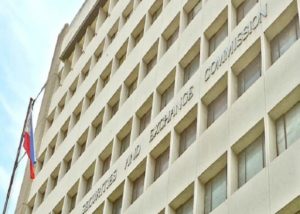Despite having spent all of the $750-million loan extended by the Asian Infrastructure Investment Bank (AIIB) last year, the Philippines failed to drastically reduce the spread of COVID-19—one of the intended results of the Beijing-based lender’s financing.
In its latest project implementation monitoring report last week, the AIIB noted that one of the intermediate result indicators for its co-financing of the Philippines’ COVID-19 active response and expenditure support (CARES) program was prolonging infections’ doubling rate to 30 days by end-2020.
But the number of confirmed COVID-19 cases in the Philippines had been doubling every three to four days at the end of last year, similar to the baseline doubling rate in April 2020.
While this target was “not met,” the AIIB said it was awaiting the Asian Development Bank’s (ADB) project completion report in November to determine how the Philippines fared with regard to other targets.
To recall, the AIIB and the Manila-based ADB co-financed the Philippines’ $2.25-billion CARES program. The ADB shelled out a bigger $1.5 billion.
The AIIB’s counterpart financing was fully disbursed in July last year. This loan formed part of the $18.4-billion foreign financing, as of end-April, which the Philippine government had secured for budgetary support to the fight against COVID-19.
The other targets of the CARES program included reducing poverty incidence to below 18 percent by April 2022 from an estimated 20.7 percent at the onset of the pandemic, as well as providing P205 billion in cash transfers to vulnerable sectors by April this year.
Before the loan was approved by the AIIB in May last year, the lender and the Department of Finance (DOF) had agreed on these goals: an increase in testing capacity to 8,000 a day by May 2020; the average turn-around time from sample collection to results shortened to 48 hours or less by July 2020, and all COVID-19 patients as well as health-care workers covered with Philippine Health Insurance Corp. in-patient and primary care COVID-19-related benefits by July 2020.
Also, the CARES program should have provided conditional cash transfers and emergency subsidy support to 4.4 million vulnerable households by July 2020; emergency subsidy support to 13.6 million households also by July 2020; $600 million in economic stimulus and support to highly affected and vulnerable sectors by December 2020; wage subsidies to some one million micro, small and medium enterprises (MSMEs) also by December 2020; and tax relief for at least a million MSMEs by end-2020.
Last March, the AIIB approved its $300-million contribution to the $700-million second health system enhancement to address and limit COVID-19 (HEAL 2) project, which is also co-financed by the ADB.
Its latest loan to the Philippines was also the AIIB’s first-ever vaccine financing under its COVID-19 crisis recovery facility.
The AIIB and the ADB’s combined loans for the Department of Health’s (DOH) HEAL 2 project will be spent on COVID-19 vaccines for about 50 million Filipinos.
With the World Bank’s additional $500-million financing for the COVID-19 emergency response project, the three lenders will shell out a total of $1.2 billion for the DOH’s vaccine procurement. INQ


